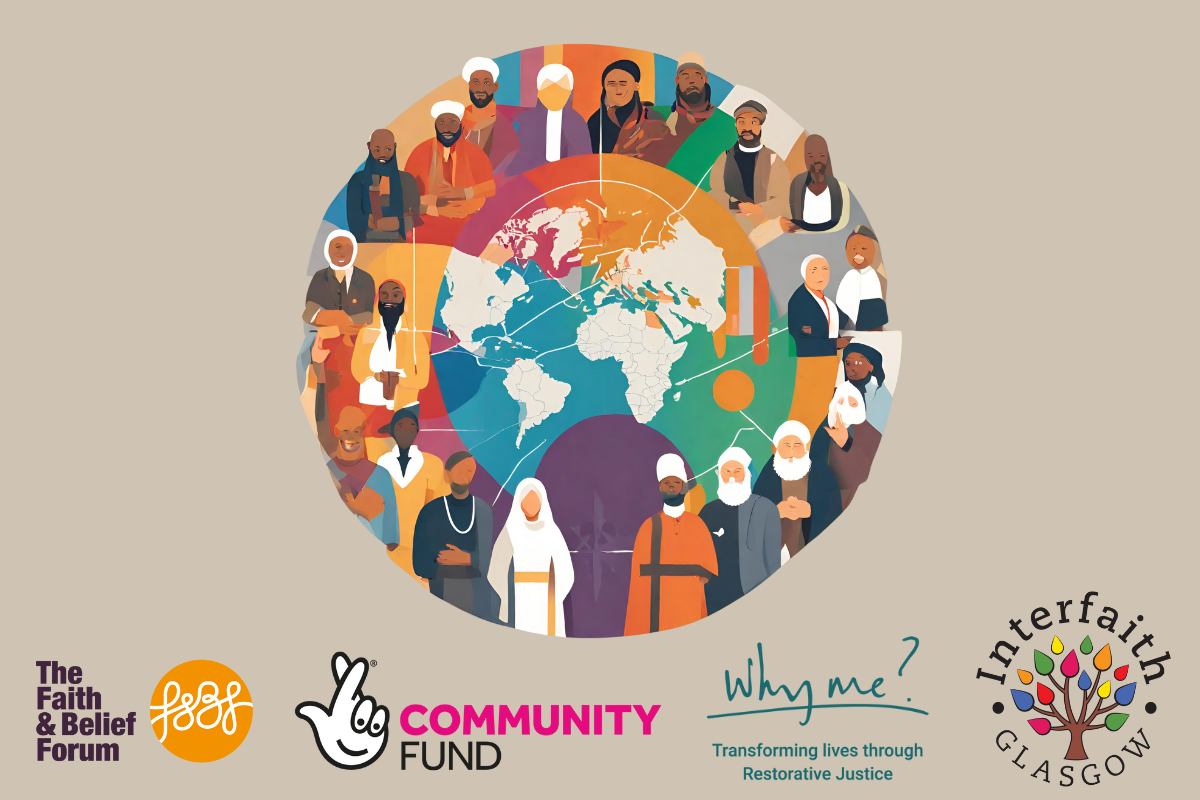
Menu
Menu

29 / 09 / 23

“It is He who made you custodians of the earth and raises some of you above others in rank, to test you through what He gives you.” –Quran, 6:165
Inequality is part of this world. No two individuals’ stories are the same – even if they are twins. They might stick to each other like glue throughout their lives, but the one born first will always make fun of the one born 30 seconds later. The experience of the (playful) bully is not the same as the bullied.
The questions that arise for me, therefore, are both theoretical and practical, explicative and prescriptive. Why (not how) is their inequality in the world? And what do we do about it?
Some people are born with silver spoons in their mouths, some people are gifted with natural talents that set them apart, and some are raised in environments that allow their innate potential to flourish whilst others have to struggle to simply breathe everyday – be it literally or metaphorically.
In effect, you could argue all politics attempts to address the inbuilt imbalance in our world – or at least, it exists because of it. If everyone could have everything they wanted, no one would need to vote, march or declare war to obtain what they didn’t have.
I had the honour of joining this year’s ParliaMentors on their induction residential earlier in September and I can say it was one of the most beautiful weeks in recent memory. Not only was the weather phenomenal (30 degrees in September!), the location serene, but the company of passionate young leaders renewed my own zeal to work for change on every level. The biggest privilege for me is that this is my job. And that very topic – privilege – was a topic of one of the workshops the ParliaMentors engaged in.
The ParliaMentors programme has been running for 15 years and has been recognised by the UN – and for good reason. Graduates have gone onto impactful careers in influential fields from business and NGOs to law and politics, but it all starts with a 3 day residential at Pax Lodge, one of a string of international centres. In the Power & Privilege workshop, the ParliaMentors reflected on their own stories as they anonymously shared responses to statements like “I don’t need to earn money alongside my studies,” “I have never been stopped by the police for looking suspicious,” and “No one in my immediate family has been addicted to drugs or alcohol.”
Observing them got me thinking about all the perceived and unperceived privileges I had benefited from and that had led me to where I stood that day. It also made me ponder on the question: is privilege necessarily a bad thing?
I will relent from addressing that question directly and opening up a can of meta-ethical worms (on this occasion). What I will say is that understanding how our privileges (or lack thereof) might have impacted our journeys lets us see the obstacles others might face. When looking to help them through our social action endeavours, indeed, it is those privileges and deprivations that give us either the power or the knowledge to help others effectively.
The verse of the Quran I quoted at the top of this article sets a grounding principle of how Islam envisions individuals’ role in a societal model. The verse sets the scene that imbalance was placed in this world intentionally to serve a purpose; it provides an opportunity. That opportunity is that those who are privileged, those that have “been raised above others in rank,” have the chance to use their material rank and give from their wealth justly and generously. Consequently, they can rise in spiritual station before God.
In short, all situations, in the Islamic worldview, provide opportunities to grow in different ways towards being more godly. That can encompass being generous, grateful, patient, just, or forgiving among an array of other divine attributes. Each situation has its own correct response and we’re on a journey of not just working those responses out, but consistently living by them.
Looking at the verse on a reverse level (what is known as mafhum al-mukhalaf in Quranic sciences), the standard and challenge for those who are poor is not the same as that of those who God has ‘privileged.’ While the materially privileged might be expected to give generously, the way a deprived person may grow in their spirituality and closeness to God is not necessarily through charity.
For someone impoverished to be resolute in hardship, or to still give charity despite poverty, is more honourable in God’s eyes than the easy living and vast giving of the wealthy. Furthermore, if they are totally unable to give financially, the Prophet Muhammad (saw) labelled both a smile and a good word as acts of charity. As Imam Ali, the Prophet Muhammad’s cousin and, within Shi’i Islam, his successor says, “Do not feel ashamed if the amount of charity you give is small, because to refuse the needy is an act of greater shame.”
Ultimately, whether we are given or deprived from certain luxuries or amenities, there are always opportunities to grow closer to manifesting godly characteristics of just and generous bestowal when privileged, or trustful patience and contentment when deprived.
“The Messenger (Muhammad)… releases them from their burdens and shackles that bound them before.” –Quran, 7:157
I often hear people saying “this is what God has trialled you with, be patient.” I would argue that it’s quite rich of someone in a privileged position to command a deprived or suffering individual to “just be patient.” I believe that, on one hand, we’ve misunderstood what patience means (it’s not just waiting for the storm to pass). On the other hand, the role of the privileged one has been neglected and the burden shifted exclusively onto the deprived to be ‘toughen up and deal with it.’
That sort of simplistic view comes from a partial reading of the Quran – and one from a place of power that at best induces complacency; at worst it is an intentional effort to exonerate oneself from wider responsibility. Patience is part of the answer, sure, but it’s a temporary response on the long term journey towards socio-economic (and, eventually, spiritual) liberation.
This second verse situates the Prophet Muhammad (saw) as a catalyst for removing societally imposed bonds and instigating lasting change. What the Quran calls “burdens” and “shackles,” we today might call “systematic disenfranchisement/oppression.” And the role of the Prophet (saw) and his message is to remove them so that people may become free to pursue their purpose.
Thinking about money, arguably the primary form of power and privilege, there are multiple other verses spread throughout the Quran that mandate various financial systems and duties “so that that wealth should not circulate only among those of you who are rich.” (Quran, 59:7).
The sixth Shi’i Imam, Jafar al-Sadiq, is recorded to have said that “Had people given their (religiously ordained) dues properly there would not remain a poor, needy Muslim and would have become comfortable by what Allah had prescribed.”
Islamic Economics is, of course, a massive topic and I am currently reviewing an upcoming book that delves into the topic in much depth, exploring the idea of a “Liberative Islamic Economic Model” with practical models of creating a liberative socio-economic model. I look forward to the day I can share more about it.
For now, let us briefly touch on the notion of almsgiving, Zakat. Many readers will be familiar with the Islamic notion of Zakat, an obligatory 2.5% tax levied on annual savings. As I mentioned, the notion of financial giving in Islam, encompasses far more. But I want to explore a deeper meaning of Zakat, where it is understood in the light of an array of privileges.
Literally, the word Zakat, means “purification.” Hence, financial Zakat is to purify the wealth you have earned by giving away a portion to the rightfully deserving. Within Shi’i tradition, Zakat encompasses more than just financial giving. Imam Ali has a series of famous sayings expanding the notion of Zakat where he attaches it to every conceivable category of privilege.
Among Imam Ali’s elucidations he says, “Everything has a Zakat: the Zakat of beauty is modesty, the Zakat of triumph is pardon, the Zakat of knowledge is acting upon it and teaching it to a deserving person, the Zakat of power is justice.”
Consider these explications (of which there are more) as commentary and real life examples of the verses quoted throughout this article. All of these categories Imam Ali mentions are forms of rank and privilege in various social spheres. The point he is getting at is to not abuse what we have been given, not to neglect the duty it brings, and to be gracious with it. At their root they are all varying forms and tools of power that can be used either to serve oneself, or serve others. They each come with their own responsibility.
This may work on an individualistic level, but the question then is how Islam proposes a cohesive socio-economic model to “remove the burdens and shackles” that tie people down. That, we will explore in coming weeks.